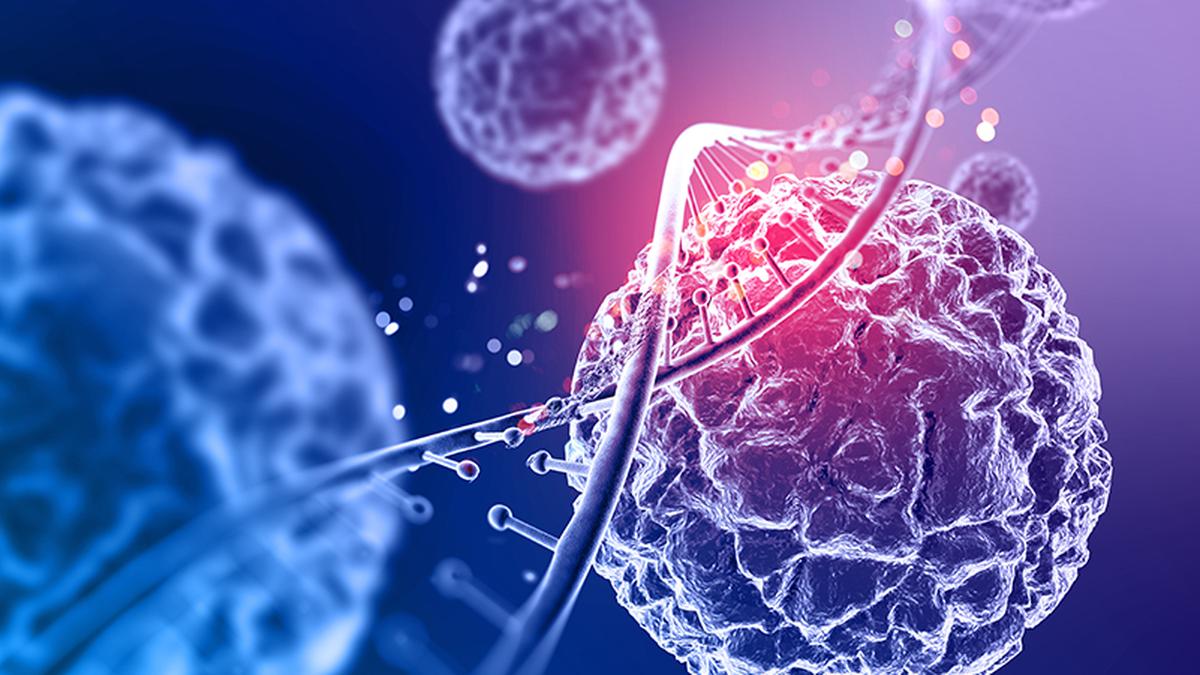CART-T cell therapy, these cells are engineered to recognise and target the specific cancer cell, thus using the immune system to fight the disease. Photograph used for representational purposes only
| Photo Credit: File Photo
An ICMR-funded trial led by CMC Vellore demonstrated that CAR-T therapy, which uses a patient’s own T cells to fight cancer, can be safely manufactured at the hospital and infused to treat patients in India at a low cost.
For the first time, these CAR-T cells were produced and infused in a hospital in India.
CMC Vellore director and principal author of the study Vikram Mathews explained that Chimeric antigen receptor T cells (CAR-T cells) are normal T-cells that are part of the patient’s own immune system. In CART-T cell therapy, these cells are engineered to recognise and target the specific cancer cell, thus using the immune system to fight the disease. CAR-T cell therapy has been proven to be very effective even in patients who have failed all other therapies, he said.
This process usually involves inserting into the normal T cells, the required genetic information to produce an antibody receptor that will recognise the antigen/substance on the surface of the cancer cell. “This process is usually done in large centralised commercial corporations, which contributes to logistic challenges, increased costs, and decreased efficacy,” Dr. Mathews said.

One of many strategies to reduce the cost of this therapy, is to produce the CAR-T cells at the hospital site itself, this strategy is called decentralized or point-of-care manufacturing (PoC).
In this study, the authors provided evidence that this is feasible in India.
What did the study find?
Early data from this study establishes its safety and also shows promising results, said Dr Mathews said.
A total of 10 patients, aged 6-59 years, six of them with acute leukemia and four with lymphoma, who had failed all earlier treatments, were treated with CAR-T cells manufactured at CMC Vellore under this PoC strategy.
The study found that the therapy brought about 100 per cent remission in acute lymphoblastic leukaemia patients, 50 per cent remission in large B-cell lymphoma patients. Overall, eight of the ten patients remained cancer-free at a median follow-up of 15 months since starting the therapy.
The doctors further reported that this was safe, well-tolerated, and had minimal side effects.
The study, ‘Safety, efficacy and total cost of point-of-care manufactured anti-CD19 CAR-T cell therapy in India: VELCART trial’ has been published in the journal Molecular Therapy.

The study also stated that when CART-T cells are manufactured in this PoC model, the cost of the therapy is nearly 90 per cent less than the global average. The production time for the CART-T cells was nine days in in-hospital settings.
Dr Mathews said that the use of a fresh, unfrozen product also contributed to better outcomes.
“This trial redefines how cancer therapy can be delivered – efficiently, affordably, and close to patients. India is leading the way in developing next-generation, in-house biotherapies with global relevance,” he said.
“This model could be easily replicated in most tertiary healthcare facilities in the country,” Dr Mathews said.
Published – May 22, 2025 05:15 pm IST
